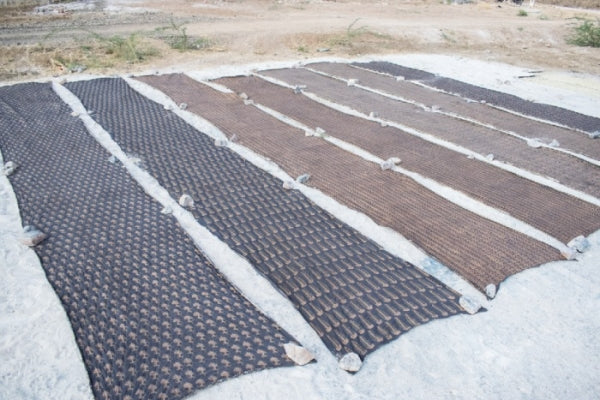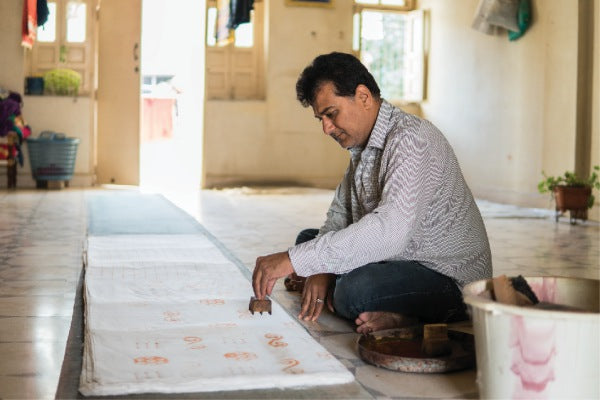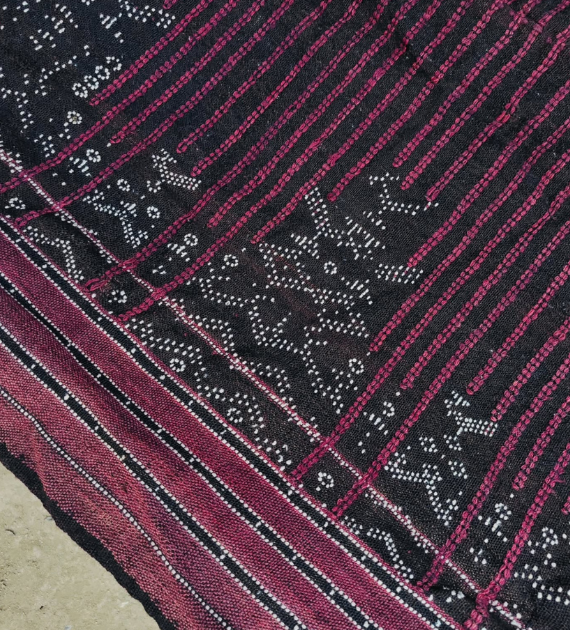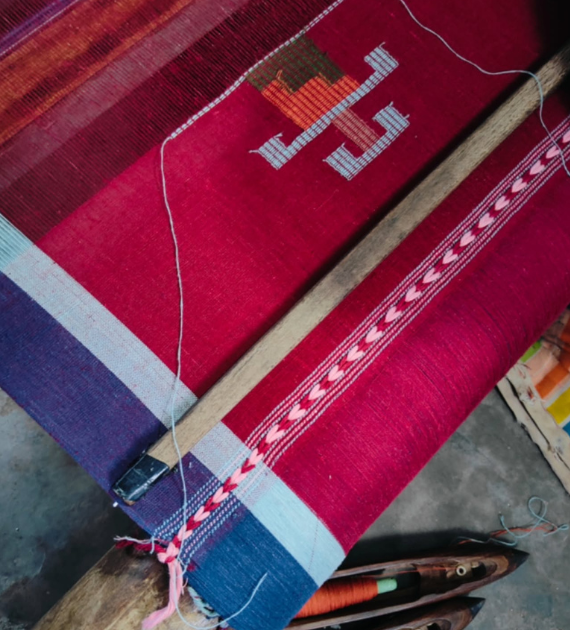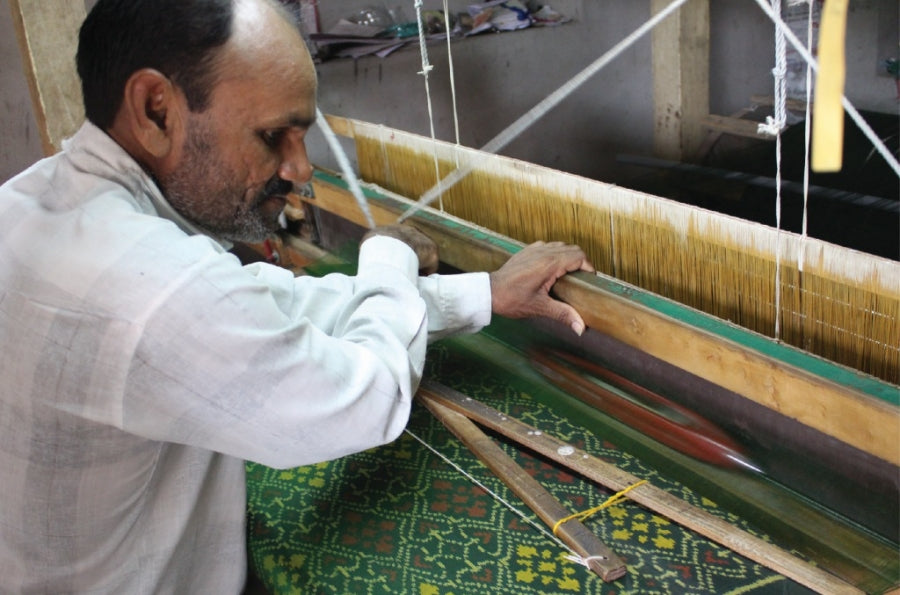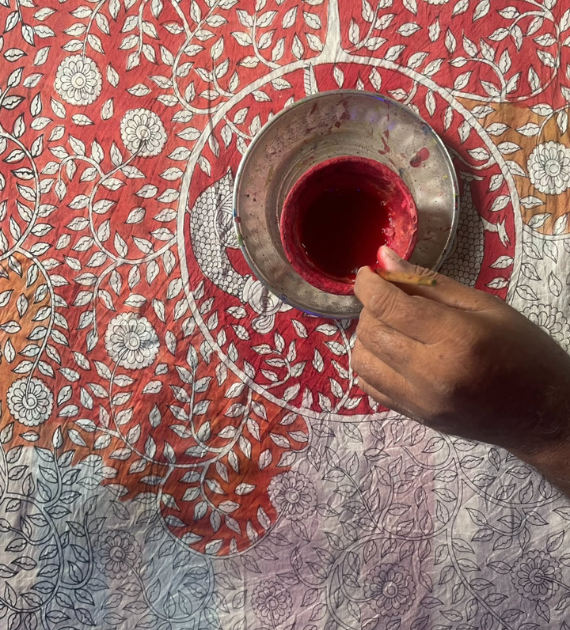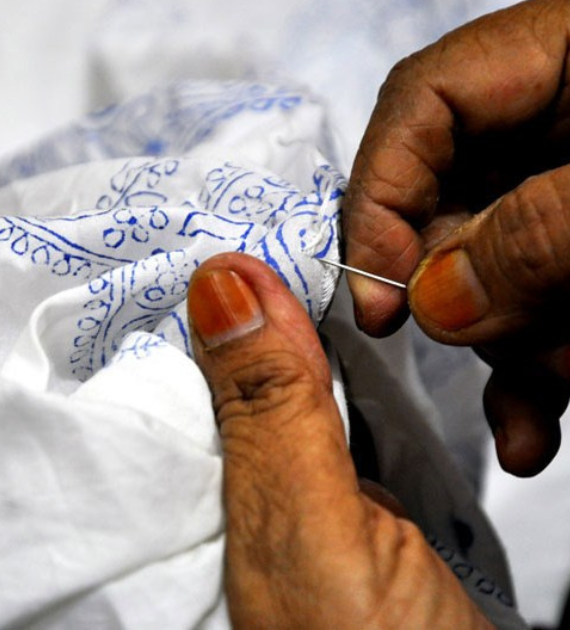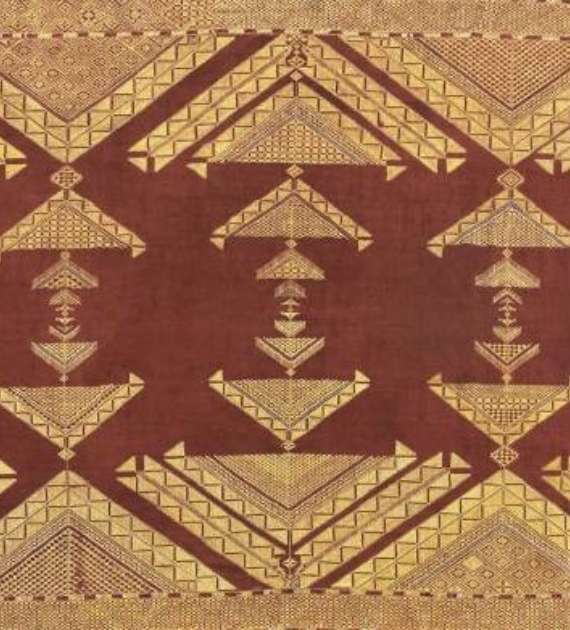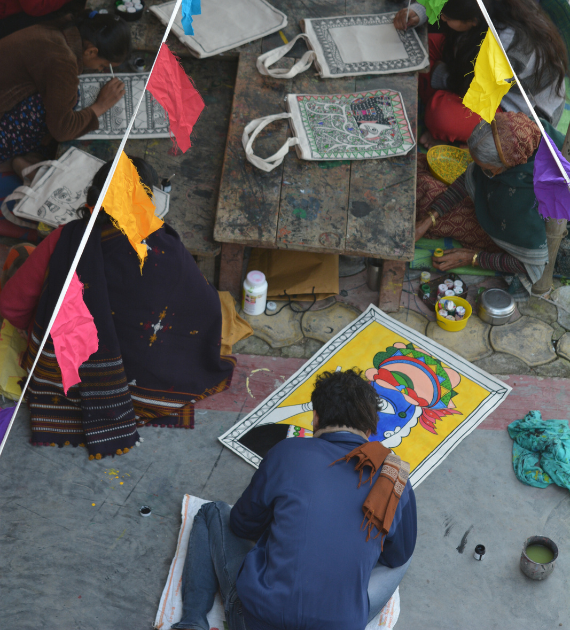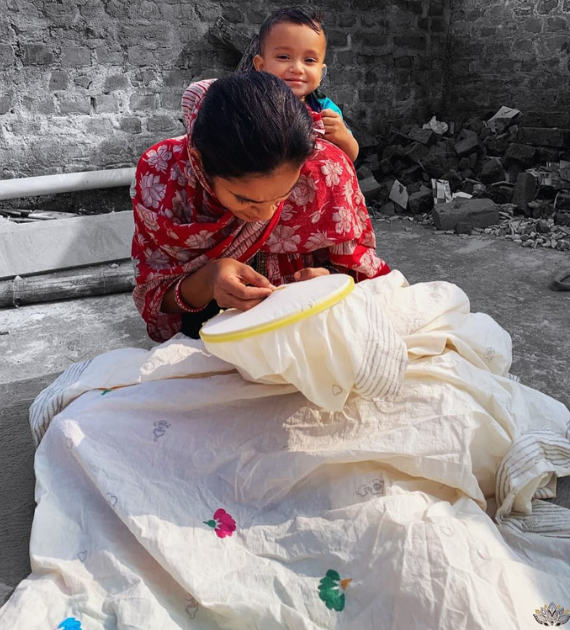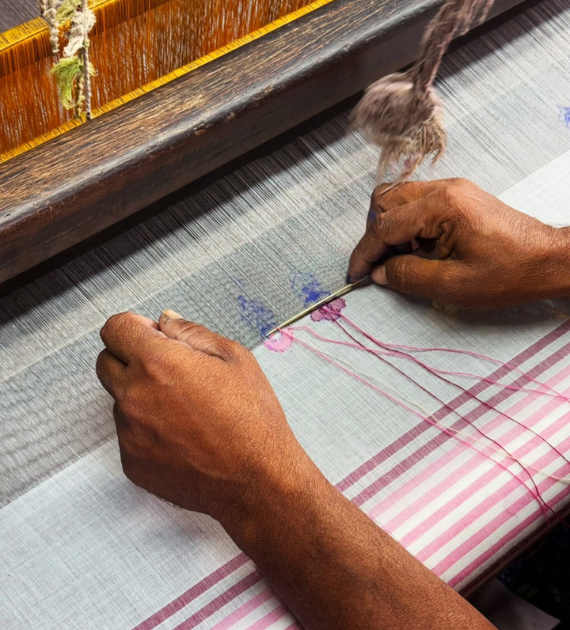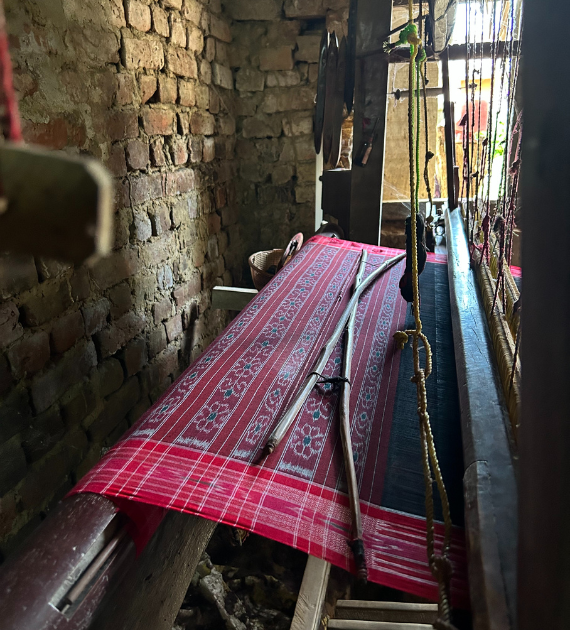Sort by:
Bandhani Chanderi Silk Handcrafted Dupatta
Rs. 5,440.00
Made by - Exclusive Amounee
MEASUREMENTS: Length- 2.5mtr
MATERIAL(S): Chanderi silk
CARE: Dry Clean Only
Bandhani Chanderi Silk Handcrafted Dupatta
Rs. 5,440.00
Made by - Exclusive Amounee
MEASUREMENTS: Length- 2.5mtr
MATERIAL(S): Chanderi silk
CARE: Dry Clean Only
Bandhani Chanderi Silk Handcrafted Dupatta
Rs. 5,440.00
Made by - Exclusive Amounee
MEASUREMENTS: Length- 2.5mtr
MATERIAL(S): Chanderi silk
CARE: Dry Clean Only
Bandhani Chanderi Silk Handcrafted Dupatta
Rs. 5,440.00
Made by - Exclusive Amounee
MEASUREMENTS: Length- 2.5mtr
MATERIAL(S): Chanderi silk
CARE: Dry Clean Only
Bandhani Chanderi Silk Handcrafted Dupatta
Rs. 5,440.00
Made by - Exclusive Amounee
MEASUREMENTS: Length- 2.5mtr
MATERIAL(S): Chanderi silk
CARE: Dry Clean Only
Bandhani Chanderi Silk Handcrafted Dupatta
Rs. 5,440.00
Made by - Exclusive Amounee
MEASUREMENTS: Length- 2.5mtr
COLOR: Light peach
MATERIAL(S): Chanderi silk
CARE: Dry Clean Only
Bandhani Gadwal Cotton Dupatta
Rs. 1,680.00
Made by - Hemal Bhai
MEASUREMENTS: Length- 2.5mtr
MATERIAL(S): Cotton
CARE: Dry Clean Only
Bandhani Silk Dupatta
Rs. 10,500.00
Made by: Amra AroraColor: PinkThis product is hand crafted and may have slight irregularities that are a natural outcome of the human involvement in the process. SHIPPING INFO: Dispatched in...
Bandhani Silk Dupatta
Rs. 10,500.00
Made by: Amra AroraColor: Light Blue This product is hand crafted and may have slight irregularities that are a natural outcome of the human involvement in the process. SHIPPING INFO: Dispatched...
Bandhani Silk Dupatta
Rs. 10,500.00
Made by: Amra AroraColor: Light Green This product is hand crafted and may have slight irregularities that are a natural outcome of the human involvement in the process. SHIPPING INFO: Dispatched...
Bandhani Silk Dupatta
Rs. 10,500.00
Made by: Amra AroraColor: Light Pink This product is hand crafted and may have slight irregularities that are a natural outcome of the human involvement in the process. SHIPPING INFO: Dispatched...
Bandhani Silk Dupatta
Rs. 10,500.00
Made by - Amra Arora
MEASUREMENTS: Length- 2.5mtr
MATERIAL(S): silk
CARE: Dry Clean Only
Bandhani Silk Dupatta
Rs. 10,500.00
Made by: Amra AroraColor: PurpleThis product is hand crafted and may have slight irregularities that are a natural outcome of the human involvement in the process. SHIPPING INFO: Dispatched in...
Bandhani Silk Dupatta
Rs. 10,500.00
Made by: Amra AroraColor: BlueThis product is hand crafted and may have slight irregularities that are a natural outcome of the human involvement in the process. SHIPPING INFO: Dispatched in...
Bandhani Silk Dupatta
Rs. 10,500.00
Made by - Amra Arora
MEASUREMENTS: Length- 2.5mtr
MATERIAL(S): silk
CARE: Dry Clean Only
Bandhani Silk Dupatta
Rs. 12,600.00
Made by - Hemal Bhai This product is hand crafted and may have slight irregularities that are a natural outcome of the human involvement in the process. SHIPPING INFO: Dispatched in...
Bandhani Silk Dupatta
Rs. 12,600.00
Made by - Hemal Bhai This product is hand crafted and may have slight irregularities that are a natural outcome of the human involvement in the process. SHIPPING INFO: Dispatched in...
Bandhani Silk Dupatta
Rs. 12,600.00
Made by - Hemal Bhai This product is hand crafted and may have slight irregularities that are a natural outcome of the human involvement in the process. SHIPPING INFO: Dispatched in...
Bandhani Silk Dupatta
Rs. 12,600.00
Made by - Hemal Bhai This product is hand crafted and may have slight irregularities that are a natural outcome of the human involvement in the process. SHIPPING INFO: Dispatched in...
Bandhani Gajji Silk Dupatta
Rs. 7,350.00
Made by - Hemal Bhai This product is hand crafted and may have slight irregularities that are a natural outcome of the human involvement in the process. SHIPPING INFO: Dispatched in...
Bandhani Silk Dupatta
Rs. 3,360.00
Made by - Hemal Bhai This product is hand crafted and may have slight irregularities that are a natural outcome of the human involvement in the process. SHIPPING INFO: Dispatched in...
Bandhani Silk Dupatta
Rs. 7,350.00
Made by - Hemal Bhai This product is hand crafted and may have slight irregularities that are a natural outcome of the human involvement in the process. SHIPPING INFO: Dispatched in...
Bandhani Silk Dupatta
Rs. 7,350.00
Made by - Hemal Bhai This product is hand crafted and may have slight irregularities that are a natural outcome of the human involvement in the process. SHIPPING INFO: Dispatched in...
Bandhani Gajji Silk Dupatta
Rs. 11,550.00
Made by - Hemal Bhai This product is hand crafted and may have slight irregularities that are a natural outcome of the human involvement in the process. SHIPPING INFO: Dispatched in...
Bandhani Silk Dupatta
Rs. 12,600.00
Made by - Hemal Bhai This product is hand crafted and may have slight irregularities that are a natural outcome of the human involvement in the process. SHIPPING INFO: Dispatched in...
Bandhani Silk Dupatta
Rs. 12,600.00
Made by - Hemal Bhai This product is hand crafted and may have slight irregularities that are a natural outcome of the human involvement in the process. SHIPPING INFO: Dispatched in...
Bandhani Silk Dupatta
Rs. 11,550.00
Made by - Hemal Bhai This product is hand crafted and may have slight irregularities that are a natural outcome of the human involvement in the process. SHIPPING INFO: Dispatched in...
Bandhani Gajji Silk Dupatta
Rs. 7,350.00
Made by - Hemal Bhai This product is hand crafted and may have slight irregularities that are a natural outcome of the human involvement in the process. SHIPPING INFO: Dispatched in...
Bandhani Gajji Silk Dupatta
Rs. 7,350.00
Made by - Hemal Bhai This product is hand crafted and may have slight irregularities that are a natural outcome of the human involvement in the process. SHIPPING INFO: Dispatched in...
Bandhani Gajji Silk Dupatta
Rs. 5,250.00
Made by - Hemal Bhai This product is hand crafted and may have slight irregularities that are a natural outcome of the human involvement in the process. SHIPPING INFO: Dispatched in...
Bandhani Silk Dupatta
Rs. 12,600.00
Made by - Hemal Bhai This product is hand crafted and may have slight irregularities that are a natural outcome of the human involvement in the process. SHIPPING INFO: Dispatched in...
Bandhani Crepe Dupatta
Rs. 9,450.00
Made by - Hemal Bhai
MEASUREMENTS: Length- 2.5mtr
MATERIAL(S): Crepe
CARE: Dry Clean Only
Bandhani Crepe Dupatta
Rs. 9,450.00
Made by - Hemal Bhai
MEASUREMENTS: Length- 2.5mtr
MATERIAL(S): Crepe
CARE: Dry Clean Only
Bandhani Crepe Dupatta
Rs. 9,450.00
Made by - Hemal Bhai
MEASUREMENTS: Length- 2.5mtr
MATERIAL(S): Crepe
CARE: Dry Clean Only
Bandhani Crepe Dupatta
Rs. 9,450.00
Made by - Hemal Bhai This product is hand crafted and may have slight irregularities that are a natural outcome of the human involvement in the process. SHIPPING INFO:...
Bandhani Crepe Dupatta
Rs. 9,450.00
Made by - Hemal Bhai
MEASUREMENTS: Length- 2.5mtr
MATERIAL(S): Crepe
CARE: Dry Clean Only
Bandhani Crepe Dupatta
Rs. 9,450.00
Made by - Hemal Bhai
MEASUREMENTS: Length- 2.5mtr
MATERIAL(S): Crepe
CARE: Dry Clean Only
BANDHANI CHANDERI SUIT PIECE
Rs. 8,000.00
Made by – Arif Khatri
MEASUREMENTS: Top- 2.5mtr, Dupatta- 2.5mtrMATERIAL(S): Chanderi- Cotton Silk
CARE: Dry Clean Only
BANDHANI CHANDERI SUIT PIECE
Rs. 8,000.00
Made by – Arif Khatri
MEASUREMENTS: Top- 2.5mtr, Dupatta- 2.5mtrMATERIAL(S): Chanderi- Cotton Silk
CARE: Dry Clean Only
BANDHANI CHANDERI SUIT PIECE
Rs. 8,000.00
Made by – Arif Khatri
MEASUREMENTS: Top- 2.5mtr, Dupatta- 2.5mtrMATERIAL(S): Chanderi- Cotton Silk
CARE: Dry Clean Only
BANDHANI CHANDERI SUIT PIECE
Rs. 8,000.00
Made by – Arif Khatri
MEASUREMENTS: Top- 2.5mtr, Dupatta- 2.5mtrMATERIAL(S): Chanderi- Cotton Silk
CARE: Dry Clean Only
BANDHANI CHANDERI SUIT PIECE
Rs. 8,000.00
Made by – Arif Khatri
MEASUREMENTS: Top- 2.5mtr, Dupatta- 2.5mtrMATERIAL(S): Chanderi- Cotton Silk
CARE: Dry Clean Only
BANDHANI CHANDERI SUIT PIECE
Rs. 8,000.00
Made by – Arif KhatriThis product is hand crafted and may have slight irregularities that are a natural outcome of the human involvement in the process.SHIPPING INFO: Dispatched in a...
BANDHANI CHANDERI SUIT PIECE
Rs. 8,000.00
Made by – Arif Khatri
MEASUREMENTS: Top- 2.5mtr, Dupatta- 2.5mtrMATERIAL(S): Chanderi- Cotton Silk
CARE: Dry Clean Only
BANDHANI CHANDERI SUIT PIECE
Rs. 8,000.00
Made by – Arif Khatri
MEASUREMENTS: Top- 2.5mtr, Dupatta- 2.5mtrMATERIAL(S): Chanderi- Cotton Silk
CARE: Dry Clean Only
Bandhani Silk Dupatta
Rs. 5,250.00
Made by - Hemal Bhai
MEASUREMENTS: Length- 2.5mtr
MATERIAL(S): Gajji silk
Bandhani Silk Dupatta
Rs. 3,520.00
Made by - Hemal Bhai
MEASUREMENTS: Length- 2.5mtr
MATERIAL(S): Gajji silk
Bandhani Silk Dupatta
Rs. 3,520.00
Made by - Hemal Bhai
MEASUREMENTS: Length- 2.5mtr
MATERIAL(S): Gajji silk


